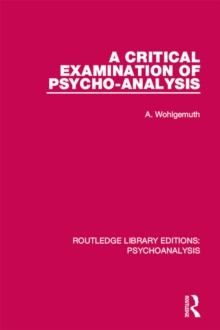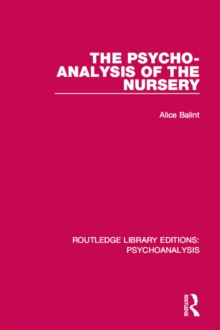
Psychoanalysis and the Postmodern Impulse : Knowing and Being since Freud's Psychology EPUB
by Barnaby B. (University of Witwatersrand, South Africa) Barratt
Part of the Routledge Library Editions: Psychoanalysis series
EPUB
Description
According to the author, psychoanalytic theory and practice – which discloses ‘the interminable falsity of the human subject’s belief in the mastery of its own mental life’ – is in part responsible for the coming of the postmodern era.
In this title, originally published in 1993, Barratt examines the role of psychoanalysis in what he sees as the crisis of modernism, shows why the modernist position – what he calls the ‘modern episteme’ – is failing, and proposes that psychoanalysis should redefine itself as a postmodern method. In Barratt’s innovative account of psychoanalysis, which focuses on the significance of the free-associative process, Freud’s discovery of the repressed unconscious leads to a claim that is basic to postmodern ideas: ‘that all thinking and speaking, the production and reproduction of psychic reality, is inherently dynamic, polysemous, and contradictorious .’ He argues that subsequent attempts to ‘normalize and systematize’ psychoanalysis are reactionary and antipsychoanalytic efforts to salvage the modern episteme that psychoanalysis itself calls into question.
Information
-
Download - Immediately Available
- Format:EPUB
- Pages:282 pages
- Publisher:Taylor & Francis Ltd
- Publication Date:06/11/2015
- Category:
- ISBN:9781317360346
Information
-
Download - Immediately Available
- Format:EPUB
- Pages:282 pages
- Publisher:Taylor & Francis Ltd
- Publication Date:06/11/2015
- Category:
- ISBN:9781317360346










